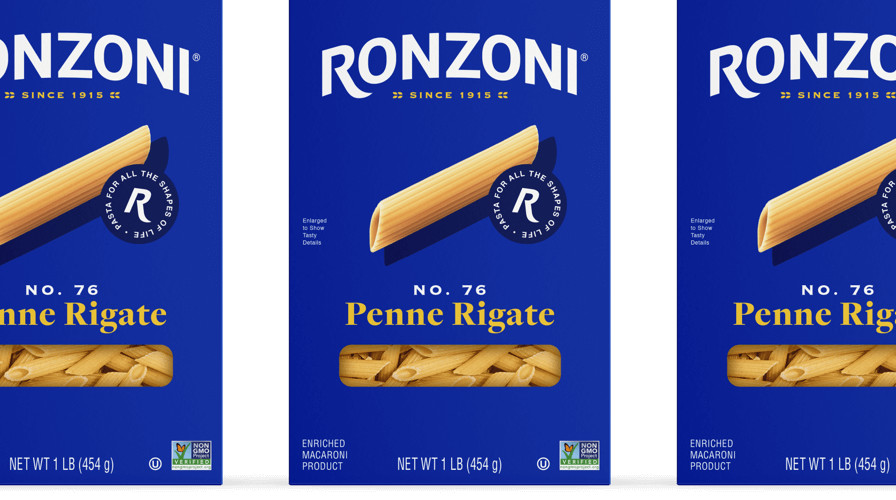Your FAQs. Our Answers.
Uncooked, since some pastas will double or even triple in volume after cooking.
Yes, all our pastas are refined and free of impurities.
We buy it milled already. We have contracts with millers who are typically located right beside our plant. Fun fact: they feed the flour directly to our plants!
Yes, all our pasta products are Kosher.
We use conventionally grown wheat to make most varieties of Ronzoni pasta. U.S. wheat farmers use U.S. Environmental Protection Agency (EPA) approved pesticides to protect wheat crops from pests. In applying pesticides, by law, farmers must adhere to the EPA-approved pesticide label for strict instructions on use.
Around 50, and it’s considered a low GI food.
We don’t recommend boiling this product, since it’s precooked. Oven Ready was designed to re-hydrate in typical lasagna recipes. Boiling can result in starchy broken pieces that are difficult to separate.
We do not recommend cooking Ronzoni pasta in a slow cooker. To properly cook, the pasta must be placed in boiling water to gelatinize the starches.
We don’t recommend it. Our products should be stored in a cool, dry place for maximum freshness. Glass or metal containers are recommended for storing dry products.
Of course! Pasta dishes may be prepared up to 24 hours ahead of time, refrigerated (covered) and then baked. They may also be prepared and frozen (unbaked) for up to 2 months. But for quality reasons, we don’t recommend freezing baked lasagna.
We recommend only heating short cuts (such as elbows, penne, rotini) in the microwave. Long cuts (such as spaghetti, linguine, fettuccine, etc.) do not cook well.
- Microwave water at HIGH (100%) in 3 qt microwave safe bowl 5 to 9 minutes or until boiling; carefully stir in pasta.
- Microwave, uncovered, at HIGH 7 to 9 minutes or just until tender. (This is for 1 serving of pasta. The amount of water is the same whether on the stove or in the microwave.)
We recommend cooking the pasta separately, following the cooking directions on packaging, and then adding the cooked pasta to the soup broth.
We only recommend rinsing for cold salads to stop the cooking time. Rinsing pasta that is intended to be served in a hot dish with hot tap water will lower its temperature and may also cause more starch, which will make for more stickiness.
With the exception of Ronzoni Gluten-Free, all Ronzoni products contain wheat.
The majority of our pastas are produced in facilities that use eggs. Be sure to check the label ingredients and allergen statement.
Ronzoni products do not contain nor are they produced in facilities with peanuts, nuts, milk, soy, fish, shellfish, and sesame.
Yes, our Ronzoni Gluten Free pasta is produced in a dedicated gluten-free facility.
Yes, the majority of our products are made from wheat so they will contain some amount of gluten. The only exception is our Ronzoni Gluten Free pasta, which is made in a dedicated gluten free facility. Crafted with a unique multigrain blend of quinoa, white and brown rice, and corn, Ronzoni Gluten Free captures the same great taste and texture of traditional pasta.
Many Ronzoni Pasta products are Non-GMO Project Verified. Look for the Non-GMO Project Verification Seal on the package. As of February 18, 2015 there is no genetically modified wheat commercially grown in the United States*.
*Source: United States Department of Agriculture. For more information on the Non-GMO Verified program, visit: http://www.foodchainid.com/Non-GMO-Project/Non-GMO-Project-Verification.
The powder we use is unlike pasta made from semolina and durum flour. Ronzoni Garden Delight is made from vegetables, including dried carrot, tomato, and spinach, bringing a little more color to your pasta.
The powder we use is unlike pasta made from semolina and durum flour. Ronzoni Healthy Harvest is a 100% whole grain pasta, providing 56 g of whole grains per serving. It also is a good source of fiber, creating a satisfying foundation for wholesome meals.
